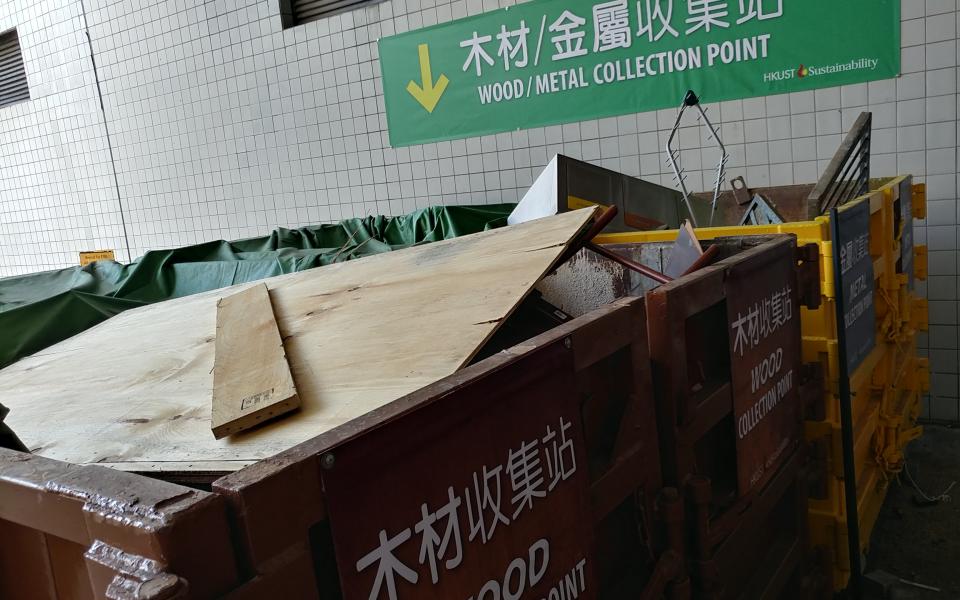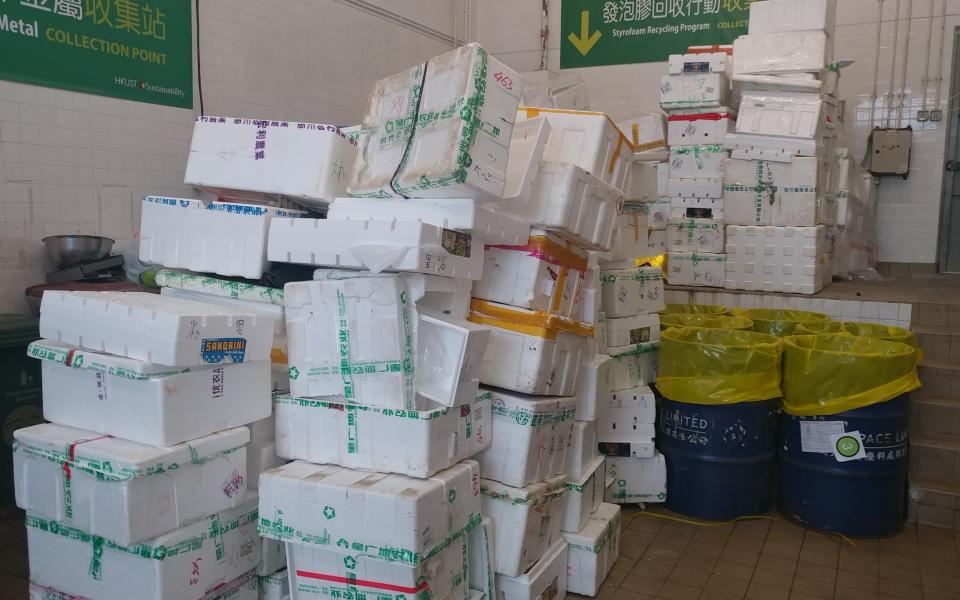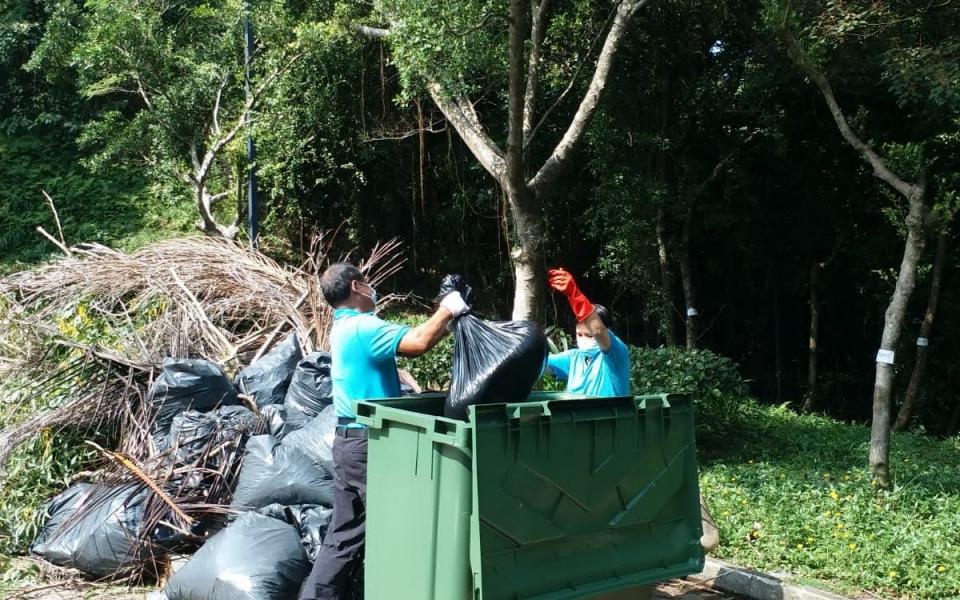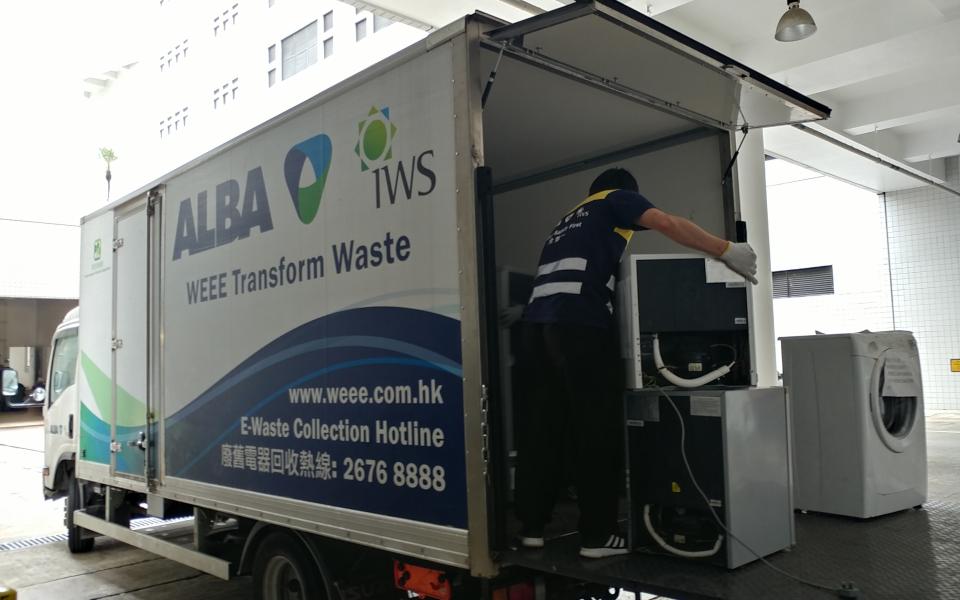Recycling Infrastructure
STEP1 What can be recycled, and what cannot?

Classification Guide:
YES:
#1,2,4,5,6,7 types of plastics
such as various types of beverage plastic bottles, personal product bottles,
plastic bags, and plastic utensils
NO:
#3 plastics (PVC), chemical bottles,
rubber/latex (e.g. slippers/flip-flops, balloons),
silicon (e.g. collapsible food containers)
X-ray plastic films, and cassette tapes
YES:
books, office paper, magazines,
newspaper, corrugated fiberboard
paper packagings
NO:
paper towels, tissues, tracing paper,
receipts (thermal paper)
TIPS:
Please tear off plastic tape, remove non-paper materials (such as paper clips, staples, etc.)
Please keep the paper dry before recycling
YES:
all colors of clean glass containers
NO:
broken glass, light bulbs,
window glass, lab glass, mirrors
TIPS:
Please remove cap and rinse the bottle before recycling
For lab broken glass, please dispose them in special bins
YES:
tin cans, aluminum cans and trays
NO:
compressed gas cylinders/aerosol cans,
chemical containers, dangerous and sharp items
YES:
portable rechargeable batteries generated from household,
such as Li-ion, NiMH and Ni-Cd contained in mobile phones and tablets
NO:
compressed gas cylinders/aerosol cans,
chemical containers, dangerous and sharp items
TIPS:
Please cover the battery terminal with masking tape before recycling,
as a safety precaution to prevent contact during storage and transport.
YES:
raw, cooked, leftover, and spoiled food,
including peelings, innards, fish scales,
residues such as coffee grounds and soup pulp
NO:
hard materials,
oversized bones,
excess liquid,
utensils and toopicks
TIPS:
Please remove all the packages before recycling
STEP2 Find proper places to recycle!
Over the years, we have met the HKUST 2020 Sustainability Challenge targets on reducing waste going to landfill by 50%, over 200 new recycling bins and collection stations have been installed around the campus.

Now with Sustainability 2028 Challenge, new recycling bins with tailor-made designs on “Smart People…Recycle” were installed in key common areas, office pantries, hall common rooms and staff quarters. There are wide range of collected recyclables including paper, plastic, metal, glass, food waste, electronic waste, beverage carton, wood, clothes, landscape waste and animal bedding etc.
Recycling Bins Guide:
The 3 colored recycling bins are everywhere in our campus
Atrium,
Seafront Cafeteria,
UG Hall 6, G/F,
SSQ Tower 8, G/F
Lift 20, 1/F near Loading Bay,
SSQ Tower2,3,6,8,19,
1 University Road
SSQ Tower 8, G/F,
UG Hall 1, G/F,
UG Hall 6, G/F
Student Hall Common Room Pantries,
Office Pantries,
ALL SSQ Towers, G/F,
LG1 Loading Bay B3 Refuse Chamber,
LG7 Refuse Chamber (near Lift3),
Courtyard Refuse Chamber
Atrium (near Lift2)
CYT Building, UG/F (near Lift 36)
LG7 Refuse Chamber (near Lift3)
CYT Building, UG/F (near Lift 36)
Atrium outside library
Courtyard near Lift 25-26
Outside LTC
Outside each staff quarter tower
Behind student hall II, seafront restaurant
LSK (near entrance of G/F canteen)
IAS (outside entrance)
Conference Lodge (behind the building)
University Centre, outside Uni Bistro & UniBar
Outside Water Sports Centre
Shaw Auditorium
North bus station





